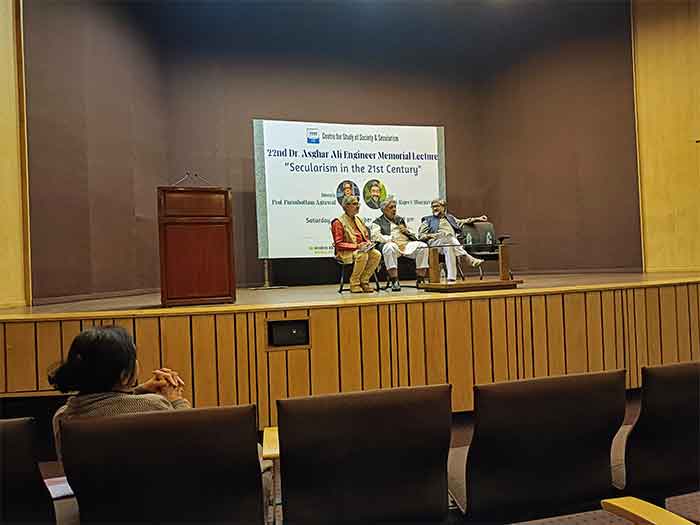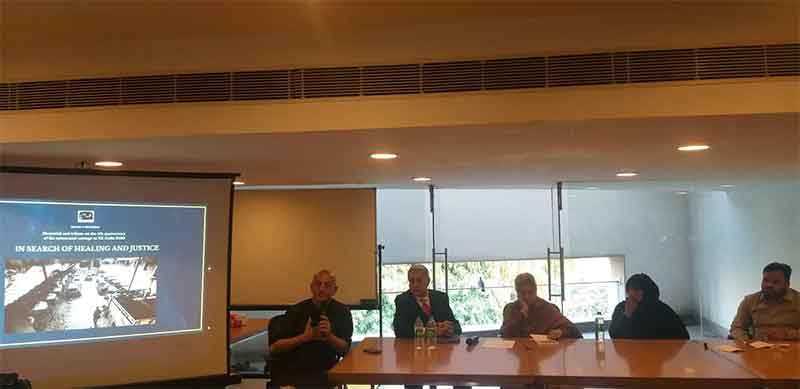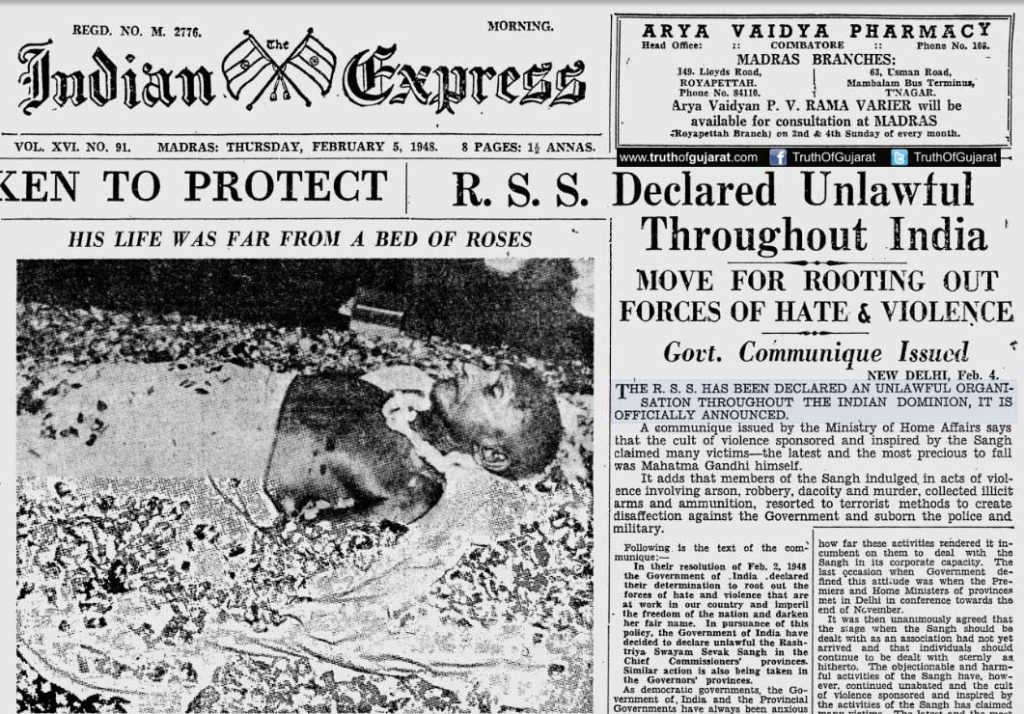
The Centre for Study of Society and Secularism (CSSS, Mumbai) recently organized the 22nd public lecture in memory of Dr. Asghar Ali Engineer. The event, centred around the theme “Secularism in the 21st Century,” took place on November 25, 2023, at Jawahar Bhawan in New Delhi. The keynote address was presented by the distinguished scholar and literary figure, Prof. Purushottam Agrawal. Prof. Rajeev Bhargava, a prominent Indian political theorist, chaired the lecture.
During his keynote speech, Prof. Purushottam Agrawal at the beginning shared his personal association with Dr. Engineer Saheb and underlined that his struggle and commitment to fight against communalism and promoting communal harmony in our society is worthwhile to remember today. Agrawal met for the first time with Dr. Engineer in 1987 at a time when ‘police violence’ took place in UP namely in places such as in Hashimpura and Maliana. Then we later became part of the Samprdayikta Virodhi Andolan (Movement Against Communalism), where Dr. Engineer used to come and share his views on communalism and secularism. Prof. Agrawal has reminded about the slogans that were raised to fight against communalism at that time:
“Kan-kan mein hain vyaape Ram,
Mat bhadkao dange le kar unka nam”
It is unfortunate that the above slogans were not enthusiastically welcomed by some groups due to lack of alignment with modern, secular and democratic terminology. For some people, taking the name of the Lord Ram (who is associated with a particular religion), is not theoretically correct to fight against majoritarian communalism. Prof. Agrawal was not bothered enough by the above remarks, but felt disheartened at the claim that a section of the Muslim community would not be happy with these slogans, although later on, the slogan found wide appreciation in the community in the Chandni Chowk neighbourhood of Delhi.
After outlining the background of the lecture, Prof. Agrawal said that the discussion would now focus on why secularism is considered an important value for us today. In contemporary times, greater emphasis has been placed on gender, caste, and religious identities rather than individual identity. This shift is contributing to a crisis to concept such as secularism, which is currently undergoing a critical phase. Furthermore, Agrawal expressed that progressive values associated with modernity and individuality are currently in retreat.
The speaker has underlined that dharm is not an individual matter; it is, by definition, collective in nature. Every religion is a way of life based on a set of norms whether Hinduism, Islam and Christianity. Values such as morality and spirituality are important and worthwhile in our life. The essence of Dharm doesn’t not grow from religion but it is informed by moral duty and spiritual values. For instance, just as the nature of water is to flow, air is to blow, the dharm of a teacher is to teach, and a student is reading, as underlined by Agrawal.
While citing noted scholar like Martha Nussbaum’s views on Jawaharlal Nehru’s engagement with Hindu religion, Agrawal said that it is untenable to say that Nehru had suppressed the Hindu religion during his time and that is the reason why Hindu communalism is now taking roots in India. It is true that Nehru in his personal life had maintained distance with rituals of Hindu religion but, it is not plausible to say that the Nehruvian state had deliberately suppressed the Hindu religious practices, as a section of scholars put-forward their views in the public domain.
While agreeing with Prof. Rajeev Bhargava’s concept of principled distance, unique variety of secularism and the great contribution to the world, said Agrawal. But, he raised the question that we need to find out from which intellectual sources the idea of principled distance came into existence and became embedded in our Constitution? While highlighting the progressive teachings of 13th century Medieval poets and saints like Kabir, Tukaram and Malik Muhammad Jayasi, he said that the message of these poets is relevant today, and need to be taken seriously. The idea of Sulh-e-kul (Arabic term meaning- peace with all) as propagated by Akbar in medieval India was, to a large extent, influenced by progressive ideas of the abovementioned poets and saints, as pointed out by the speaker. Tolerance is not good enough, there is a need to promote and foster a culture of dialogue and religious coexistence in our society. Unlike orthodox Muslims and Hindus, there are various ways to reach God, as said by Malik Muhammad Jayasi (a pious Muslim and believer of the Quran), added Prof. Agrawal.
In short, Prof. Agrawal in his lecture has underlined the importance of ‘universal human values’, spirituality and rational thinking including progressive ideas of 13th century poets and saints of early medieval India. Idea of universal values cannot be compromised for the sake of protecting religion, culture and community interests often based on irrational ideas. Instead of using hindi-language words like dharmnirpeksh and panth-nirpeksh, Prof. Agrawal prefers to use the word “secularism” instead, for the sake of avoiding linguistic and cultural ambiguities.
While giving remarks on Agrawal’s lecture, Prof. Rajeev Bhargava said that he is a brilliant and persuasive speaker. However, Bhargava wished to raise a couple of points responding about secularism and the concept of principled distance.
Prof. Bhargava has underlined how the concept of tolerance and secularism emerged in the 16th century of Europe, following the resolution of war between the Church and State. The concept of a single faith, one law, and one doctrine emerged, compelling the majority to adopt the protestant group under the threat of expulsion and extermination, added Bhargava. The contemporary exclusionary stance towards Indian Muslims in our society finds its roots in the European experience. Regrettably, recent inflammatory slogans (such as, telling Muslims to go to Pakistan) echo the similar experiences of 16th-century Europe, as expressed by the speaker. Moreover, religious practices in European countries were privatized and restricted from entering the public domain. Western secularism is built on the reduction of religious diversity, undermining pluralism (while advocating one religion and one true doctrine) and the promotion of homogenization, ultimately leading to the erosion of peaceful coexistence, as underlined by Bhargava.
In contrast to Western secularism, Indian secularism as envisioned by Nehru and others celebrates diversity and pluralism. Nehruvian secularism is against both caste hierarchy and women’s oppression. According to Bhargava, the establishment of a Hindu State would primarily serve the interests of upper-caste Hindus and exhibit a patriarchal nature, adversely affecting not only Muslims but also Dalits and women.
It is regrettable that Indian secularism has been narrowed down and come to be perceived solely as a defence of minority rights. However, Bhargava emphasizes that Indian secularism goes beyond safeguarding minority rights; it is rooted in the concept of principled distance, resisting both intra-religious and inter-religious domination. This sets it apart from American secularism, as the American Constitution did not prohibit untouchability. Bhargava underscores that the essence of Indian secularism lies in the state’s intervention in community affairs when the community’s laws, including Personal Laws, become oppressive towards women and children. However, there is a difference between communitarian laws and communal ones. Suppose that if I am Hindu and follow my religion without having biased attitudes towards Muslims, it is not an issue, but if I am Hindu and promoting hatred towards Muslims, then it becomes a problem. This is an unfortunate situation, which we are now witnessing in our society, expressed Bhargava.
While responding to the audience’s questions, how the intervention of state will be justified in today’s context, Bhargava said that “democratic state” (not Hindu state or Islamic state) -for the sake of promoting values such as freedom, equality and justice- can intervene in religious affairs (especially when community religious practices became oppressive). The idea of principled distance conceptualises that Indian secularism is based on ethical values and maintained critical respect to all religions. Unlike American secularism, Indian secularism is not based on the idea of strict separation, Indian state may intervene in religious affairs to promote values like freedom, equality and justice, and provide conditions to initiate internal reform in communities. In other words, in the name of preserving traditions and culture, state will not allow to continue, ‘illiberal’ cultural practices in society.
While responding to the question regarding the relation between secularism, religion and political economy of the state, Agrawal agreed that it can’t be separated. In response to the question of the crisis of Indian secularism that is reflected in everyday politics and how we can overcome it, Agrawal emphasized that we need to reclaim the broader idea of Indian secularism that is linked with an agenda of equality and egalitarian values, enshrined in our Constitution. Further, while answering the question related to how communal hatred is created in our society and who is responsible for it, he responded that, Indian people are not inherently good or bad, such binaries have been created by leaders and media houses who are actually responsible for fanning hatred in our society.
Finally, we need to recognise that Dr. Engineer writings on secularism, communalism, communal harmony and progressive aspects of religious values are relevant now. Besides, campaigns launched to promote communal harmony and peace in society during his lifetime, such as the Samprdayikta Virodhi Andolan, as stated above need to be taken seriously now by the progressive section of our society who wish to build up an egalitarian society in India.
Dr. Badre Alam Khan is PhD from Department of Political Science University of Delhi and currently associated with the Karwan -e-Mohabbat.















































